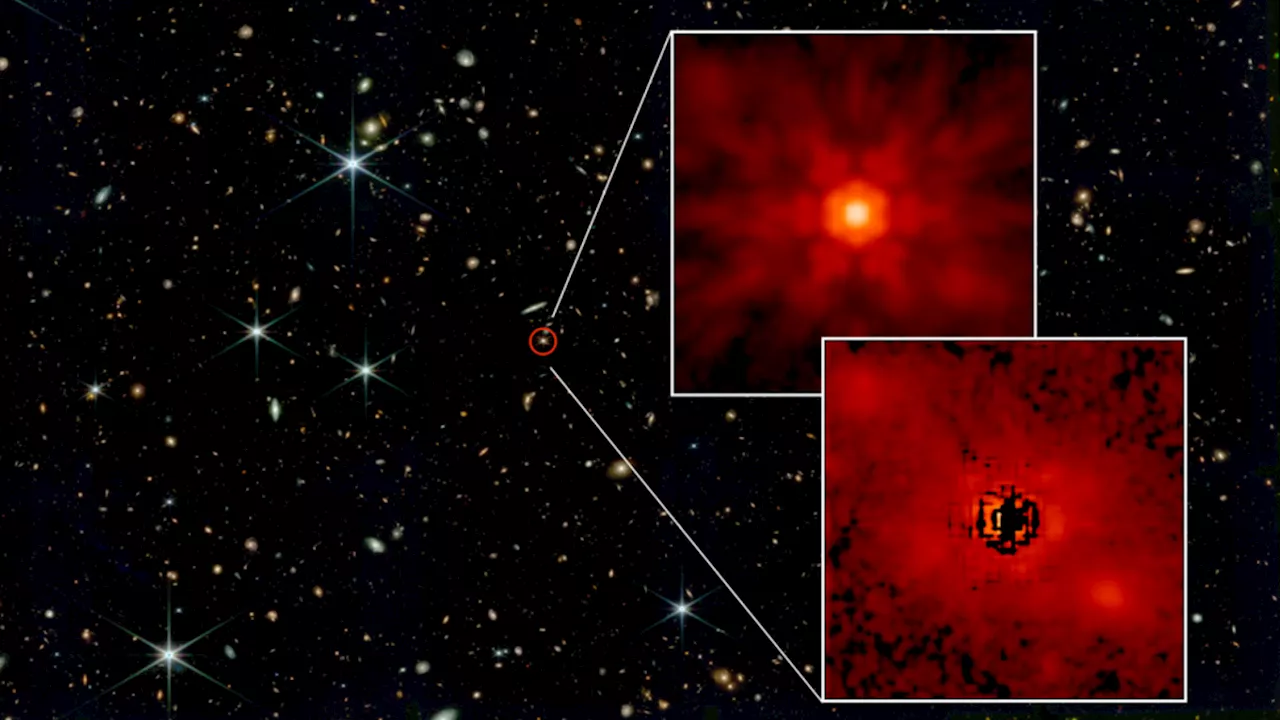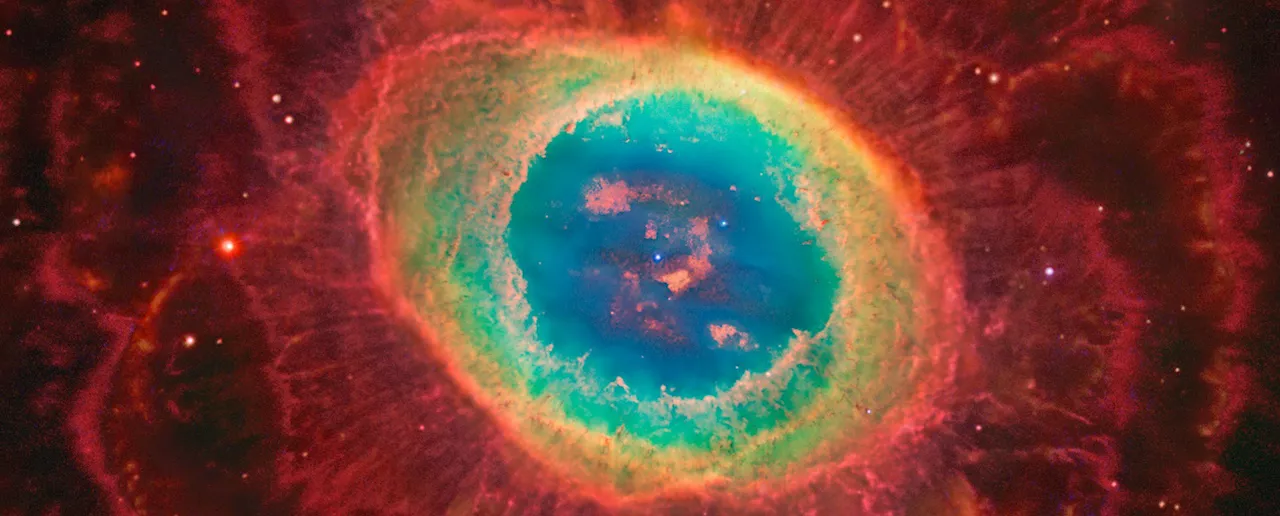Paul M. Sutter is a research professor in astrophysics at SUNY Stony Brook University and the Flatiron Institute in New York City. He regularly appears on TV and podcasts, including 'Ask a Spaceman.' He is the author of two books, 'Your Place in the Universe' and 'How to Die in Space,' and is a regular contributor to Space.
The worlds of dark matter and regular matter connect only through their gravity — and astronomers hope that giant cavities in space known as"superbubbles" might hold the key to understanding that connection.
Now, astronomers at the University of Tartu in Estonia may have found a clever connection point: superbubbles. Related: The universe may be dominated by particles that break causality and move faster than light, new paper suggests The researchers found that the presence of superbubbles can affect the overall rotation rate of stars and galaxies by about 4% per billion years. Over the lifetime of a galaxy, that can mean sapping about half of the total rotational energy of a galaxy, greatly affecting the orbits of both stars and dark matter.
United Kingdom Latest News, United Kingdom Headlines
Similar News:You can also read news stories similar to this one that we have collected from other news sources.
 A 'cosmic glitch' in gravity: New model may explain strange behavior on a cosmic scaleA group of researchers at the University of Waterloo and the University of British Columbia have discovered a potential 'cosmic glitch' in the universe's gravity, explaining its strange behavior on a cosmic scale.
A 'cosmic glitch' in gravity: New model may explain strange behavior on a cosmic scaleA group of researchers at the University of Waterloo and the University of British Columbia have discovered a potential 'cosmic glitch' in the universe's gravity, explaining its strange behavior on a cosmic scale.
Read more »
 James Webb Space Telescope suggests supermassive black holes grew from heavy cosmic 'seeds'Robert Lea is a science journalist in the U.K. whose articles have been published in Physics World, New Scientist, Astronomy Magazine, All About Space, Newsweek and ZME Science. He also writes about science communication for Elsevier and the European Journal of Physics. Rob holds a bachelor of science degree in physics and astronomy from the U.K.
James Webb Space Telescope suggests supermassive black holes grew from heavy cosmic 'seeds'Robert Lea is a science journalist in the U.K. whose articles have been published in Physics World, New Scientist, Astronomy Magazine, All About Space, Newsweek and ZME Science. He also writes about science communication for Elsevier and the European Journal of Physics. Rob holds a bachelor of science degree in physics and astronomy from the U.K.
Read more »
 Cosmic Revelation: MIT Uncovers a New Space MoleculeScience, Space and Technology News 2024
Cosmic Revelation: MIT Uncovers a New Space MoleculeScience, Space and Technology News 2024
Read more »
 Cosmic Enigma: Astronomers Have Explained the Mystery of the Fullerenes in SpaceScience, Space and Technology News 2024
Cosmic Enigma: Astronomers Have Explained the Mystery of the Fullerenes in SpaceScience, Space and Technology News 2024
Read more »
Hubble Space Telescope marks 34 years with new portrait of a ‘cosmic dumbbell’Editor&8217;s note: Sign up for CNN’s Wonder Theory science newsletter. Explore the universe with news on fascinating discoveries, scientific advancements and more.
Read more »
 Cosmic fountain is polluting intergalactic space with 50 million suns' worth of materialRobert Lea is a science journalist in the U.K. whose articles have been published in Physics World, New Scientist, Astronomy Magazine, All About Space, Newsweek and ZME Science. He also writes about science communication for Elsevier and the European Journal of Physics. Rob holds a bachelor of science degree in physics and astronomy from the U.K.
Cosmic fountain is polluting intergalactic space with 50 million suns' worth of materialRobert Lea is a science journalist in the U.K. whose articles have been published in Physics World, New Scientist, Astronomy Magazine, All About Space, Newsweek and ZME Science. He also writes about science communication for Elsevier and the European Journal of Physics. Rob holds a bachelor of science degree in physics and astronomy from the U.K.
Read more »
